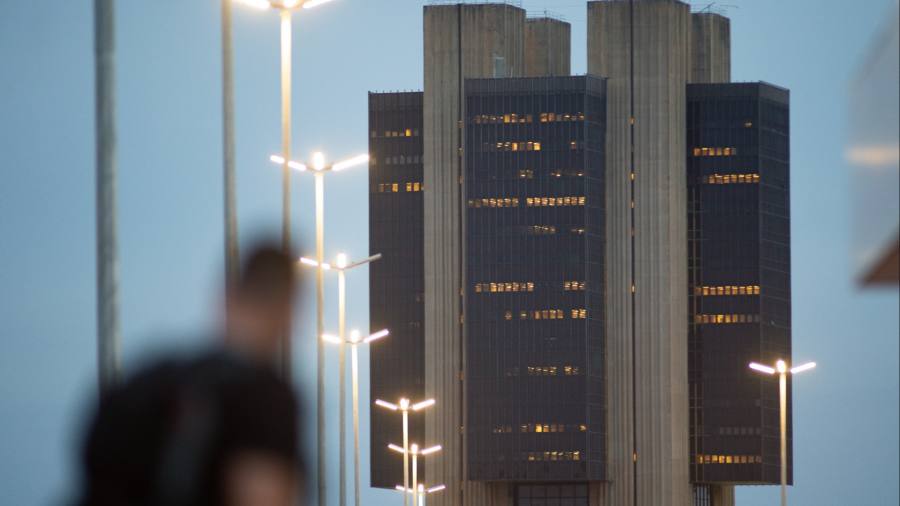An ally of president Luiz Inácio Lula da Silva has been appointed to a post on Brazil’s central bank, as the leftwing leader increases the pressure to cut interest rates.
Gabriel Galípolo, a 40-year-old former banking executive who is deputy to finance minister and Lula loyalist Fernando Haddad, will serve as the institution’s new monetary policy director.
He was one of two people appointed to the nine-member monetary policy committee, known as Copom, on Monday. The other is Ailton Aquino dos Santos, a career central bank employee, who will be director of supervision. Both will serve four-year terms but must first be ratified by the Senate.
The appointments come as relations between Lula and the central bank’s top leadership grow increasingly tense.
Since assuming office for a third term at the start of 2023, the 77-year-old president has railed against the bank’s aggressive monetary policy as a drag on economic growth and harmful to the poor.
The Selic borrowing benchmark has been at 13.75 per cent since August, after a series of rises intended to tame inflation.
Lula’s attacks on the bank have unnerved investors, who worry about potential political interference in a nation with a history of battles against price rises.
His administration will replace a majority of seats on the central bank’s monetary policy committee over the next few years. He must also find a successor to governor Roberto Campos Neto, whose term finishes at the end of 2024. There is speculation Galípolo might be a contender.
Sergio Vale, economist at MB Associados, said he believed the new director would vote for a reduction in the Selic rate. “[The appointment] doesn’t change much in the short and medium term, but it’s a sign of more important changes that we may have at the central bank in the future.”
Rodrigo Marcatti, chief executive of Veedha Investimentos, said the choice of Galípolo was likely to be regarded as political.
“As capable and technical as he is, the market will read it as a government attempt to push towards a lower interest rate direction.”
Brazil’s central bank was granted formal autonomy by Congress in 2021 under the previous administration of Jair Bolsonaro, a decision that Lula has questioned.
The central bank is expected to lower rates before the end of the year. Economists nonetheless expect the Selic to be at 10 per cent by the end of 2024.
The Copom has said high rates were still necessary since inflation, while cooling, was above the bank’s target. It has also cited uncertainty over the country’s fiscal situation. Lula’s pledge to increase public spending on welfare and infrastructure has stirred concerns about the trajectory of government debt.
During the election campaign, Galípolo was dispatched by Lula to act as interlocutor with the financial sector. He was previously chief executive of investment bank Banco Fator. He did not respond to a request for comment on Monday.
Read the full article here
